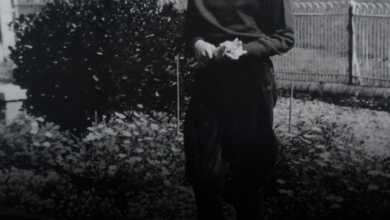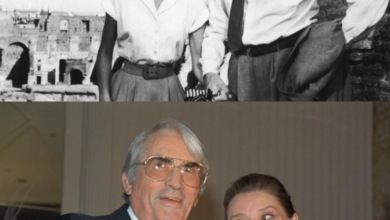Audrey Hepburn and Ava Gardner’s Iconic Oscar Race—The Surprising Story Behind Their 1954 Nominations
OPINION: This article may contain commentary which reflects the author's opinion.
Audrey Hepburn, born on May 4, 1929, and Ava Gardner, both iconic actresses of the Golden Age of Hollywood, found themselves competing for the prestigious Best Actress Oscar at the 26th Academy Awards in 1954. Their shared nomination in the same category marked a pivotal moment in their careers, showcasing the talent and appeal that defined their era. However, it was Hepburn’s breakthrough performance in Roman Holiday that ultimately won her the Oscar, leaving Gardner, nominated for her role in Mogambo, with a sense of relief rather than disappointment—a sentiment she famously shared in her autobiography.
Oscar Nominations: Two Leading Ladies
The 1953 film season proved to be a landmark year for these two leading ladies. Audrey Hepburn, with her role as Princess Ann in Roman Holiday, was nominated for Best Actress, a role that catapulted her into stardom. Hepburn’s portrayal of the rebellious princess, seeking freedom on a spontaneous adventure through Rome, earned widespread acclaim. Her performance was widely recognized, and she triumphed at the Academy Awards, taking home her first Oscar in 1954. Roman Holiday also won two other Academy Awards, including Best Costume Design and Best Story, further cementing its place in film history.

Ava Gardner, on the other hand, was nominated for her performance as Eloise “Honey Bear” Kelly in Mogambo, a glamorous adventure drama directed by John Ford. Despite facing stiff competition, Gardner’s sultry and magnetic portrayal of a showgirl involved in a love triangle with Clark Gable and Grace Kelly earned her critical praise. Mogambo was an ensemble piece, and alongside Gardner, Grace Kelly also received an Oscar nomination, showcasing the strength of the film’s cast. Though Gardner didn’t win the Oscar, the nomination stood as a significant achievement in her career and highlighted her position as one of Hollywood’s top leading ladies of the time.
Ava Gardner’s Graciousness and Relief
In a rare moment of humility, Ava Gardner reflected on the Oscar race with a sense of relief rather than disappointment when Audrey Hepburn’s name was announced as the winner. In her autobiography Ava: My Story, Gardner shared, “I was more relieved than upset when the Oscar eventually went to Audrey Hepburn in Roman Holiday.” This statement provides a fascinating glimpse into Gardner’s self-awareness and her view on her acting career. Though her performance in Mogambo was widely praised, Gardner often downplayed her talents, a sentiment echoed by her assistant, Mearene Jordan, in the memoir Living with Miss G.
Gardner’s graciousness is evident in this remark, as she expressed no bitterness toward Hepburn’s win. Instead, it reflects her admiration for Hepburn’s work and her recognition that Hepburn’s performance was deserving of the honor. This attitude of self-deprecation and sportsmanship stood in contrast to the competitive nature of the Oscars, where rivalries often take center stage. Gardner’s words only deepened the mutual respect between the two actresses, adding a layer of camaraderie to their professional rivalry.
Cultural and Historical Significance
The 1953 Oscar season, which honored films released in 1953, was highly competitive. From Here to Eternity dominated the awards, winning multiple Oscars, including Best Picture. Hepburn’s victory for Roman Holiday, however, was particularly notable because romantic comedies were rarely considered serious contenders in the Best Actress category. Her win introduced a fresh, new face to Hollywood, offering a contrast to the established glamour of actresses like Gardner, Deborah Kerr, and Leslie Caron.
For Gardner, her Oscar nomination for Mogambo marked the peak of her career, though she never won an Academy Award. This recognition highlighted her sultry allure and screen presence, which had captivated audiences throughout the 1940s and 1950s. It was a bittersweet acknowledgment, as Gardner would not receive another nomination despite her continued work in film. Nevertheless, her nomination remains a career highlight, and she continued to be celebrated as one of Hollywood’s greatest stars.
The 1953 Oscar race also showcased the industry’s ongoing focus on glamour and star power. Hepburn, with her elegance and grace, and Gardner, with her sultry allure, represented two distinct facets of Hollywood stardom, each leaving an indelible mark on the industry. Their shared nomination, and Hepburn’s eventual win, reflect the cultural and historical significance of these actresses during the Golden Age of Hollywood.
Conclusion
Audrey Hepburn and Ava Gardner’s shared Oscar nomination in 1954 remains one of the most notable moments in Hollywood history. Hepburn’s win for Roman Holiday launched her into superstardom, while Gardner’s nomination for Mogambo marked the peak of her Hollywood career. Yet, beyond the competition, it is their mutual respect and graciousness toward one another that stands out. Ava Gardner’s relief and acknowledgment of Hepburn’s deserved victory only added depth to their professional relationship, making their rivalry one of the most admired in Oscar history.



